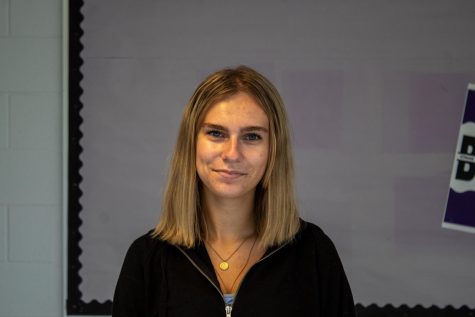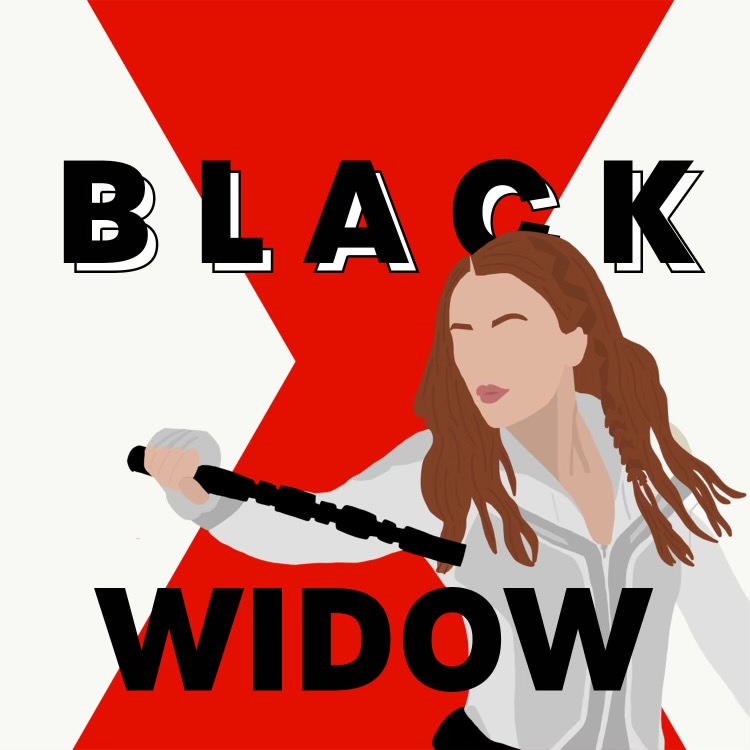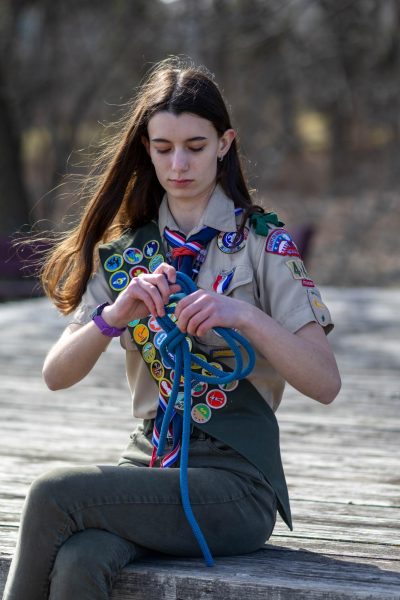“Black Widow” is an average summer action movie with a mediocre story
Marvel’s new blockbuster has a non-interesting plot and run-of-the-mill acting. Its saving grace? Decent special effects and great choreography.
Marvel’s newest release, “Black Widow”, directed by Cate Shortland, is not a close look at Cold-War era world politics, nor is it a deep character study of the eponymous hero, Natasha Romanoff, portrayed by Scarlett Johansson. “Black Widow” is more of a high-budget summer blockbuster, topping off at a budget of $200 million, with lots of explosions, expensive special effects and quip-filled one-liners.
This isn’t a bad thing, but it’s a bit below the expectations that Marvel has set for itself over the years. Iconic, highly successful MCU movies like Black Panther and Avengers: Infinity War, along with its sequel Avengers: Endgame, are epics with well-written stories that leave audiences in awe. “Black Widow”, on the other hand, feels like a return to the fairly average blockbuster roots of the series. It reminded me of early-era Marvel films, like Iron Man and Thor, which were also somewhat surface-level action movies with huge budgets and lots of explosions.
When it comes to the acting, the main character, Natasha, isn’t that great. Johansson is just wooden in a lot of scenes, especially when interacting with other characters, and the way her character is written isn’t great either.
Yelena, who is Romanoff’s adopted sister and fellow assassin, is portrayed by Florence Pugh in her Marvel debut. Yelena is a former Soviet spy who wants to free her fellow agents from the grip of the main villain, General Dreykov. Pugh does a somewhat decent job although in some scenes her emotional acting is below average.
David Harbor is also part of the main cast, playing the Red Guardian, a Soviet-era counterpart to Captain America and the adoptive father of Romanoff and Yelena. Harbor does a nice job portraying his character and was a huge source of schadenfreude comic relief during the film.
The Red Guardian is equal parts clingy and self-assured; he thinks of himself as some great family patriarch who can do anything while also being a massive idiot who wants to hold on to the nonexistent relationship he has with his adopted daughters. His character is written very well, but Harbor still has some flaws during the movie, acting-wise.
The main villain, General Dreykov, is bad when it comes to dialogue and acting. He just is not that creative; he is a completely average villain, plotting against our main characters from his home in the shadows. The Taskmaster, on the other hand, is much cooler. Taskmaster is a secondary villain in the movie and Dreykov’s main agent against Romanoff and Yelena throughout the film.
Contrary to the movie’s high budget, the special effects were somewhat varied in their quality. During most of the movie, they were done well. However, this quality wasn’t exactly as consistent as it could’ve been. Some scenes during the very beginning and in the climax had very obvious special effects issues, like the computer generated fireflies prominently featured in the first scene. Then, during the last part of the final fight, some close-up shots of characters just don’t look quite right. These mistakes don’t invalidate the quality of the rest of the movie’s special effects but they are noticeable.
Then there was the choreography, which was well done during the final fight. The fight choreography was probably the best part of the climax, if not the whole movie.
The story is, as you would expect from a blockbuster action movie, very mediocre. It wasn’t completely terrible, but some of the dialogue heavy scenes were quite boring. The dialogue wasn’t the only error in the story either, as some pretty big plot holes go unresolved, such as the fate of most of the supporting characters after the ending. The parts of the movie with the worst plot and dialogue were the final battle and ending, as these scenes were where a lot of the unsavory aspects of the movie were most present.
The quality of the special effects was more varied during the final fight and ending than any other part of the movie, and the plot certainly fell through here too. Instead of showing the audience what happened to all of the new side characters that appeared during the film, the movie just kind of stops and forgets about the supporting cast’s existence, save for Yelena, in the wake of the final battle.
As with all Marvel movies, “Black Widow” has a post-credits scene, which was surprisingly entertaining. Julia Louis-Dreyfus is hilarious as always, and the scene itself has huge implications for the upcoming Hawkeye Disney+ series.
Overall, “Black Widow” was your typical summer blockbuster action movie, with some experienced actors, some cringe-inducing actors, bland writing and exciting choreography.

Thomas Rose is a senior and a writer for “The Express.” This is his second year on staff. In addition to newspaper, Thomas is a member of NHS at Northwest. He enjoys spending time with his family, friends and dogs, and also enjoys video games, reading and baking. He’s ready to keep informing the students and the community about current events.

Sophie Dellett is a designer in her third year on staff of “The Express”. She spends her time outside of newspaper working as a nanny and a proud Hallmark Cards employee. If you’re ever looking for Sophie, no need to fret- she can always be found in a coffee shop! Her passions include reading, shopping, calligraphy, The Bachelor and of course, caffeine. Sophie’s favorite thing in the world is music, particularly Elton John, whom she has named her car after. Sophie plans to attend KU after this year and major in Communications.











